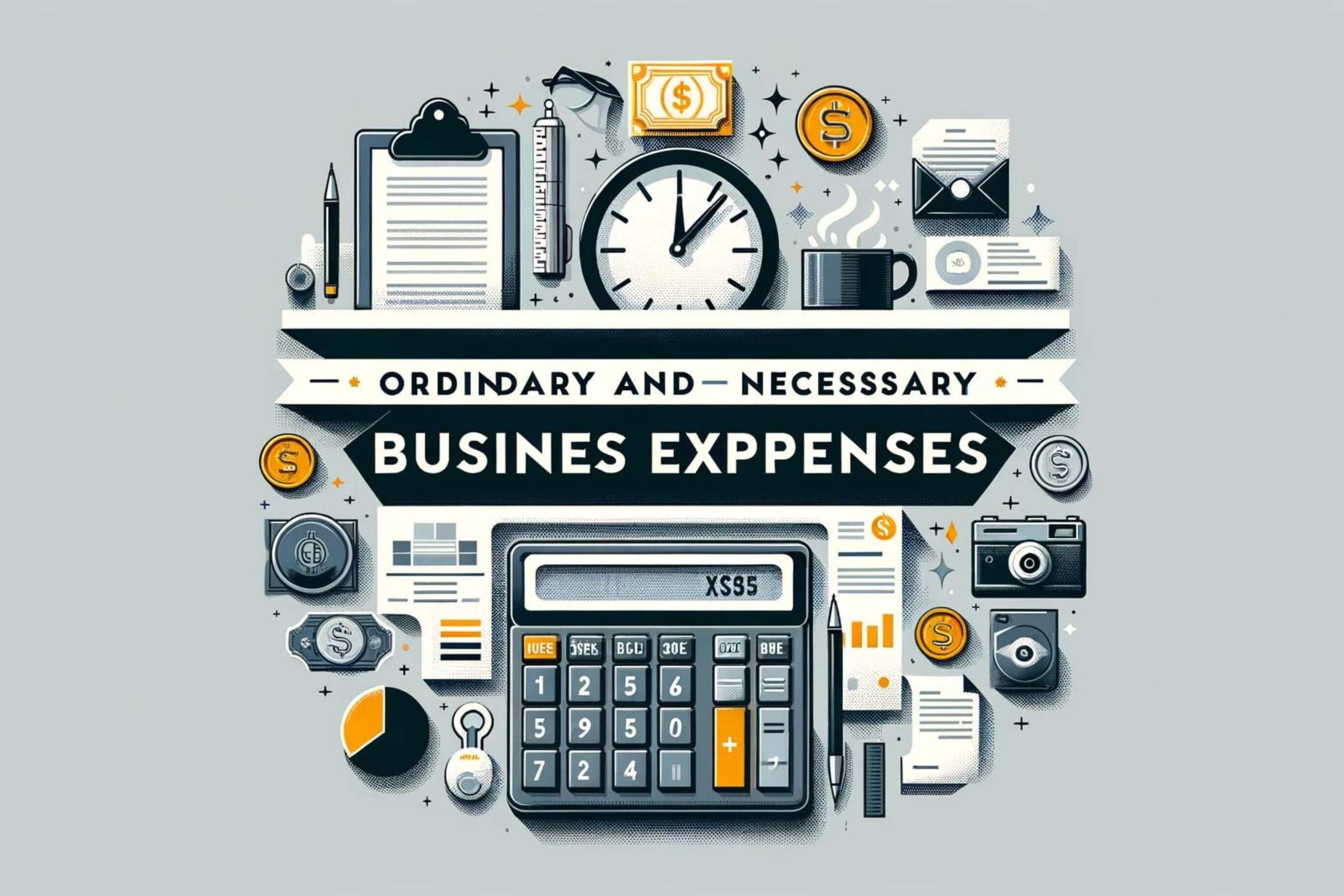
Mastering Ordinary and Necessary Business Expenses: The Ultimate Guide
Managing and comprehending company expenditures may be a challenging aspect of navigating the financial complexities of operating a business. Ordinary and essential company expenses are the most important charges among the many because of their influence on tax filings and overall financial health. This book goes into further detail about these costs and provides tips and tactics to maximize them for your company's gain.
Key Takeaways:
What you should know about regular and required company costs before we go too far:
|
Definition |
Costs that are common and accepted in your industry and are crucial for your
business operations. |
|
Tax Benefits |
Most of these expenses are tax-deductible, potentially lowering
your taxable income significantly. |
|
Examples |
Include rent, employee salaries, utilities, and office supplies,
among others. |
|
Documentation Importance |
Maintaining through records is essential for justifying
deductions during tax filings. |
|
Deduction Limitations |
Some expenses may be only partially deductible, or not
deductible at all, depending on IRS guidelines. |
|
Strategic Value |
Effective management of these expenses can enhance business
efficiency and profitability. |
Delving Into Ordinary and Necessary Expenses:
Businesses can assess their expenditures using the framework provided by the IRS's classification of some expenses as regular and essential. An average cost is one that is typical for the industry in which your company operates. On the other hand, a required spend is one that is suitable and beneficial to your company. For tax reasons, this distinction is important since it establishes which costs can lower your taxable income.
The Significance for Your Business
Comprehending and accurately classifying your spending is a strategic instrument for financial planning as well as a means of attaining tax compliance. Businesses can decide where to invest resources for optimal efficiency and tax benefits by determining whether costs are both usual and required.
Comprehensive
Examples of Ordinary and Necessary Expenses:
For additional clarification, the following is a longer list of costs that most firms incur, arranged into categories to make it easier for you to see what might be deducted:
|
Expense Category |
Detailed Examples |
|
Personnel Costs |
Salaries, wages, bonuses, employee benefits, and training
costs. |
|
Facilities Costs |
Rent, mortgage interest, real estate taxes, and utilities (electricity,
water, internet). |
|
Operational Costs |
Raw materials, inventory purchases, shipping, and manufacturing
expenses. |
|
Administrative Expenses |
Office supplies, inventory purchases, shipping, and
manufacturing expenses. |
|
Travel Entertainment |
Business travel expenses, client meals, and lodging (subject to
limitations and specific IRS rules). |
Documenting
and Deducting These Expenses:
Meticulous recordkeeping is essential to maximizing the tax advantages associated with usual and required spending. To make sure your costs are properly documented and prepared for tax season, follow these steps:
1. Keep
Receipts: Store all physical and digital receipts as evidence of your
expenditures.
2. Use
Accounting Software: Tools from our leading brands can automate expense
tracking, making it easier to categorize and report them.
3. Maintain
Detailed Records: Record the purpose, amount, date, and business relevance of
each expense.
4. Understand IRS Guidelines: Stay updated on IRS rules regarding expense deductions to ensure compliance and optimize deductions.
Advanced
Strategies for Managing Expenses:
Improving how you handle regular and required spending can change the financial environment of your company. Think about these tactics:
· Benchmarking
Against Industry Standards: Regularly compare your expenses with industry
averages to identify potential overspending or areas for efficiency improvement.
· Expense
Forecasting: Use historical data to predict future expenses for better
budgeting and financial planning.
· Professional
Audits: Periodically review your expenses with a financial expert to uncover
tax-saving opportunities and ensure compliance.
Wrapping
Up: The Path to Financial Optimization
The sound financial administration and expansion of your company depend critically on the accurate identification, recording, and handling of regular and required business costs. You can make sure that your company continues to function more profitably and efficiently while still adhering to tax requirements by utilizing the insights and tactics provided in this book.
ASAN Can Help
Empower your financial future with ASAN's expert guidance on Mastering Ordinary and Necessary Business Expenses, aligning investments with your goals for true financial freedom.
Ready to take the next step?
Contact Us
📞 Phone: +1(613)-981-7097
🌐 Website: asangroupinc.com
Disclaimer:
The information provided in this blog is intended for general guidance and informational purposes only and should not be considered as professional accounting, audit, or assurance advice. Please consult with a certified professional for specific advice tailored to your situation.

